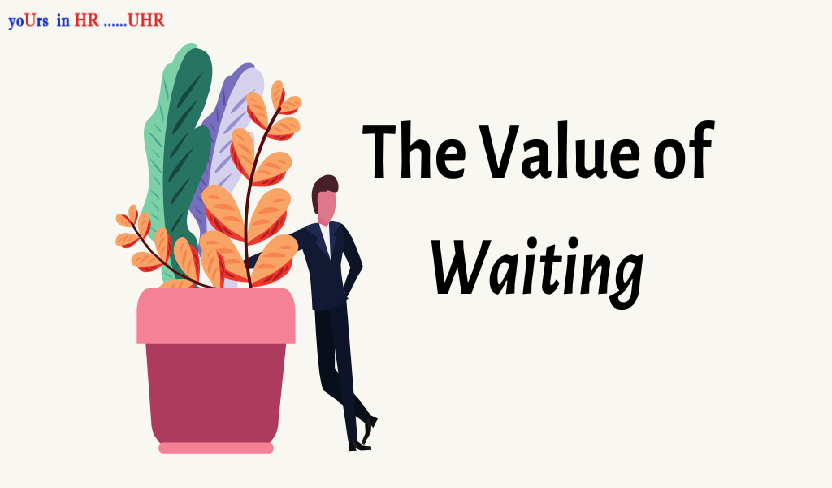
- I can’t just keep waiting around for opportunities! I have to take actions!’
- ‘I just don’t like the idea of waiting passively. You must do the work for the progress to happen. ‘
- ‘I am running out of patience; I am tired of waiting!’
Do these statements sound familiar? A lot of us who believe in working diligently towards our goals must have thought or uttered these sentences. Presently, Rakesh was also saying these very lines to his friend Raj.
‘I want that promotion now. I put in the work, I have the merit. So why this wait? I am running out of patience, really.’
‘Rakesh, I know this will change your life, and you have been due for this long now. But things unfold at their own time, and sometimes, waiting is the best thing we can do’, said Raj, with a empathy in his tone.
‘What if it all slips away while I wait and do nothing?’ Rakesh had grown more impatient with this response.
Contrasting this attitude, Raj patiently listened to Rakesh, and responded, ‘Who said waiting means doing nothing?’
‘Then what does waiting mean?’
Raj went on:
‘Think of it this way. When you plant a seed for a tree, you water it as needed, and then you wait for it to grow. This waiting is precious, because if you over-water or under-water it or try to check again and again by upturning the ground if the seed is growing or not, it will not grow. Right?’
‘I see what you mean. Go on’, Rakesh had finally started to calm down a bit.
‘You are seeing time ‘gone’ in the waiting as a barrier. But time is actually a gift. This time will let you be prepared, so when the promotion does happen, you will be well-equipped to deal with the new responsibilities. Achieving your dreams, whether professional or personal comes with a new set of responsibilities for which you must be prepared.
‘Waiting and patience, are not simply about sitting around, passively. They are about learning to be in the now, and appreciate your journey. Have you noticed, how sometimes we tend to look back on even our most difficult times fondly? The present moment is a gift and all the time that goes in waiting is the time given to us to grow for the future.’
‘Grow for the future, patiently?’ Rakesh asked.
‘Exactly! When the time is right, you will get the promotion, and all the good things that come with it. And this is the time you give yourself the space to grow into them.’
Rakesh was now smiling, calmly. ‘That makes a lot of sense. Waiting is a gift that lets me grow into the future that my efforts are going to bring in…’
‘Yes’, Raj went on, ‘And waiting teaches you that the journey itself is as precious as the destination.’
We are often told to be patient about our efforts. Things unfold. We get to reap the rewards of our efforts, but not in our time, but at the right time.
Patience is not passive waiting. As we wait, we learn to appreciate the present as well as the journey. As the proverb goes in Hindi, ‘sabr ka phal meetha hota hai’, meaning, ‘patience bores a sweet fruit’. How will the seed lead to the fruit if we don’t wait?





